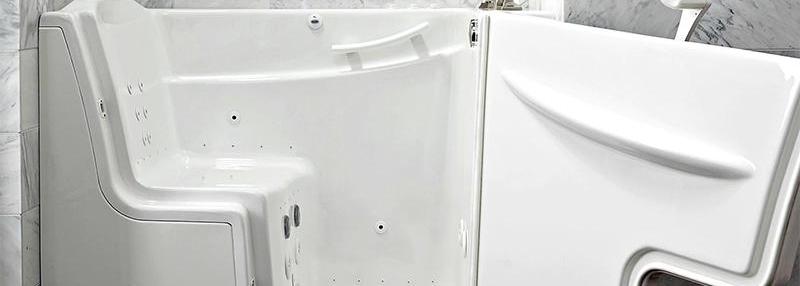Migraines can be debilitating, leaving you with throbbing pain, nausea, and sensitivity to light. While triggers vary from person to person, one factor consistently emerges as a potential cause: stress. It’s easy to assume that stress is the main culprit behind your migraines, but is it really the cause? In this post, we’ll dive into the latest research and expert opinions to uncover whether stress is truly the root of your migraine attacks.
Advertisement
1. Understanding Migraines and Stress
Migraines are not just severe headaches; they are a neurological condition that involves multiple systems in the brain. Experts believe that migraines are caused by an abnormality in the brain’s electrical activity, which leads to the release of certain chemicals like serotonin and dopamine. These chemicals affect blood vessels and pain pathways in the brain, resulting in the typical migraine symptoms.
Stress has long been linked to the onset of migraines, and it’s easy to see why. Stress activates the body’s fight-or-flight response, causing an increase in heart rate, blood pressure, and muscle tension. This physiological reaction could potentially trigger a migraine attack, particularly for those who are already prone to migraines. Chronic stress, in particular, can lead to changes in the brain that may make a person more sensitive to migraine triggers.
But does stress alone cause migraines? The answer is more complicated. While stress can certainly play a significant role in triggering migraines, it’s not the only factor at play. Genetics, environmental triggers, hormonal fluctuations, and lifestyle choices also contribute to the frequency and severity of migraines. That said, reducing stress can go a long way in preventing and managing migraines.

2. The Stress-Migraine Connection: What the Experts Say
Experts agree that stress is a major trigger for migraines, but it’s important to understand how stress interacts with other factors to cause an attack. Dr. Robert K. DeMartino, a neurologist at the Cleveland Clinic, explains that stress doesn’t directly cause migraines but instead acts as a trigger for individuals who are genetically predisposed to the condition. In other words, stress can push your body over the edge, setting off a migraine in those who are already vulnerable.
Research supports this theory. A study published in Headache: The Journal of Head and Face Pain found that individuals who experience high levels of stress are more likely to have frequent migraine attacks. The study found that stressful life events, such as a job loss, financial issues, or relationship problems, were strongly correlated with the onset of migraines. Furthermore, people with chronic stress were found to have higher levels of cortisol, a stress hormone that can affect brain function and increase the likelihood of a migraine attack.
However, experts caution that while stress is a significant factor, it is just one piece of the puzzle. Dr. Dawn Buse, a professor of neurology at Albert Einstein College of Medicine, emphasizes that migraines are complex and have a multifactorial origin. She states that it’s crucial to understand the individual triggers for each person, which may include not only stress but also diet, sleep patterns, and environmental factors like bright lights or loud sounds.
Advertisement
3. The Role of Stress in Migraine Mechanisms
While stress may not directly cause migraines, it certainly plays a role in the brain’s complex mechanisms. Stress is known to lead to the release of inflammatory chemicals that can make migraine sufferers more susceptible to attacks. In particular, stress increases the release of CGRP (calcitonin gene-related peptide), a protein that is involved in pain transmission during migraines. Studies have shown that CGRP levels are elevated during a migraine attack, and stress can trigger the release of this protein, potentially leading to pain and discomfort.
Moreover, stress can lead to muscle tension in the neck and shoulders, which is another well-known migraine trigger. Tension in these muscles can constrict blood flow and increase the likelihood of a headache or migraine. Dr. Dawn Buse suggests that managing muscle tension through relaxation techniques, like deep breathing or gentle stretching, may help reduce the frequency of migraine attacks linked to stress.
It’s also important to note that chronic stress can have long-term effects on the brain’s neurochemistry, potentially making it more difficult for migraine sufferers to manage their condition. A study conducted by the American Headache Society found that people with chronic migraines often experience changes in their brain’s pain processing pathways, making them more sensitive to stimuli and more likely to experience a migraine when stressed.

4. How to Manage Stress and Prevent Migraines
If stress is triggering your migraines, managing it effectively is crucial to reducing the frequency of attacks. Relaxation techniques are one of the most effective ways to lower stress levels and prevent migraines. Meditation, deep breathing exercises, yoga, and mindfulness practices can help activate the body’s relaxation response, which counteracts the stress response. Even just a few minutes of deep breathing or stretching each day can make a significant difference in managing migraine symptoms.
In addition to relaxation techniques, exercise is a powerful tool in managing stress and preventing migraines. Regular physical activity helps release endorphins, the body’s natural pain relievers, and can reduce muscle tension, which may help prevent tension headaches. Dr. David Dodick, a neurologist and expert in headache medicine, suggests that engaging in moderate exercise like walking, cycling, or swimming can improve overall headache management and reduce the frequency of migraine attacks.
Another critical aspect of stress management is improving sleep quality. Poor sleep can worsen migraine symptoms and make it more difficult to cope with stress. Maintaining a regular sleep schedule, avoiding caffeine late in the day, and creating a relaxing bedtime routine can improve sleep quality and reduce the likelihood of stress-induced migraines.
Finally, cognitive behavioral therapy (CBT) has proven to be an effective treatment for stress-related migraines. CBT helps individuals identify and change negative thought patterns that contribute to stress, making it easier to manage difficult situations without triggering a migraine.
5. When Stress Is Not the Only Culprit
While stress is undoubtedly a major factor, it’s essential to consider other migraine triggers. For some, dietary triggers such as caffeine, chocolate, and processed foods can set off migraines. Hormonal fluctuations, particularly in women, can also play a significant role, especially around menstruation or menopause. Environmental factors like bright lights, loud noises, or strong smells can also provoke an attack.
Additionally, some individuals may experience sleep deprivation as a migraine trigger. Sleep is vital for brain function and overall health, and poor sleep can exacerbate migraine symptoms. Monitoring your lifestyle, keeping a migraine diary, and identifying potential triggers can help you better manage your condition and reduce the frequency of attacks.
Advertisement
Final Thoughts
Stress undoubtedly plays a significant role in triggering migraines, but it is not the sole cause. Migraines are a complex condition with multiple contributing factors, including genetics, environmental triggers, and lifestyle choices. By understanding the intricate relationship between stress and migraines, individuals can take proactive steps to manage their stress levels, adopt healthy habits, and reduce the frequency of attacks. Incorporating stress management techniques like mindfulness, exercise, and relaxation practices can significantly improve the quality of life for migraine sufferers. If you’re experiencing frequent migraines, working with a healthcare professional to identify your triggers and develop a tailored treatment plan is essential.
References
- Buse, D. C., et al. “The Role of Stress in the Development of Chronic Migraine.” Headache: The Journal of Head and Face Pain 51, no. 4 (2011): 614-622.
- DeMartino, R. K., et al. “Stress as a Trigger for Migraine and Tension-Type Headaches.” Cleveland Clinic Journal of Medicine 85, no. 10 (2018): 749-756.
- Buse, D. C., and R. B. Lipton. “Chronic Migraine and Stress: The Complex Interplay Between Brain Chemistry and Environment.” The Lancet Neurology 18, no. 1 (2019): 5-9.
- Dodick, D. W., and T. G. Silbert. “Exercise and Migraine Management.” The Journal of Pain 10, no. 3 (2017): 267-274.


